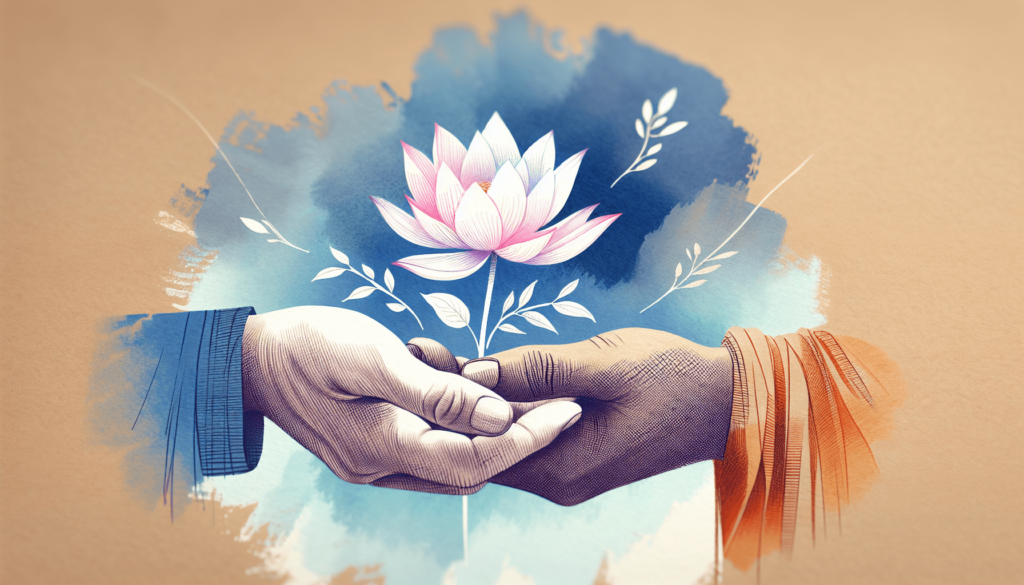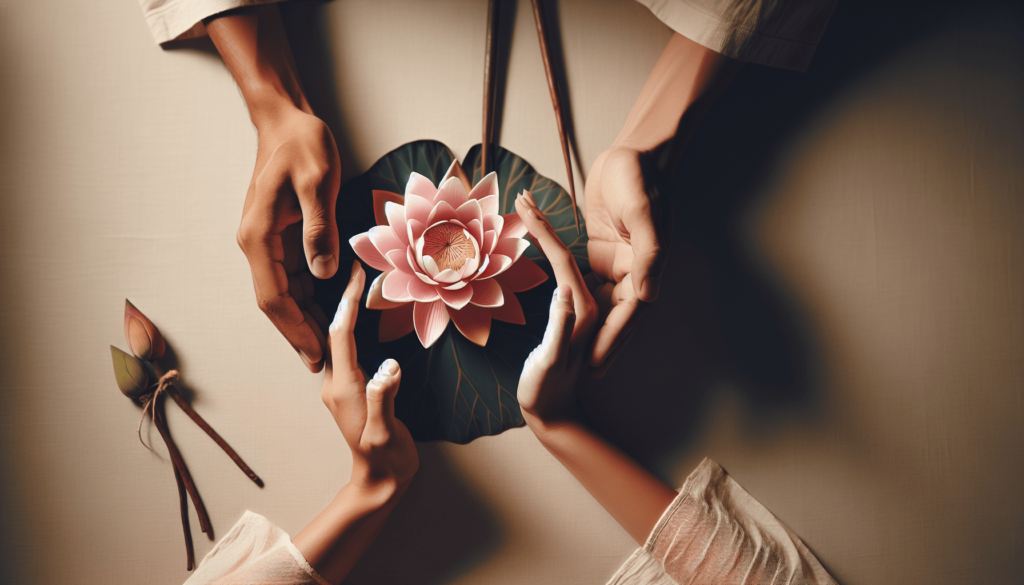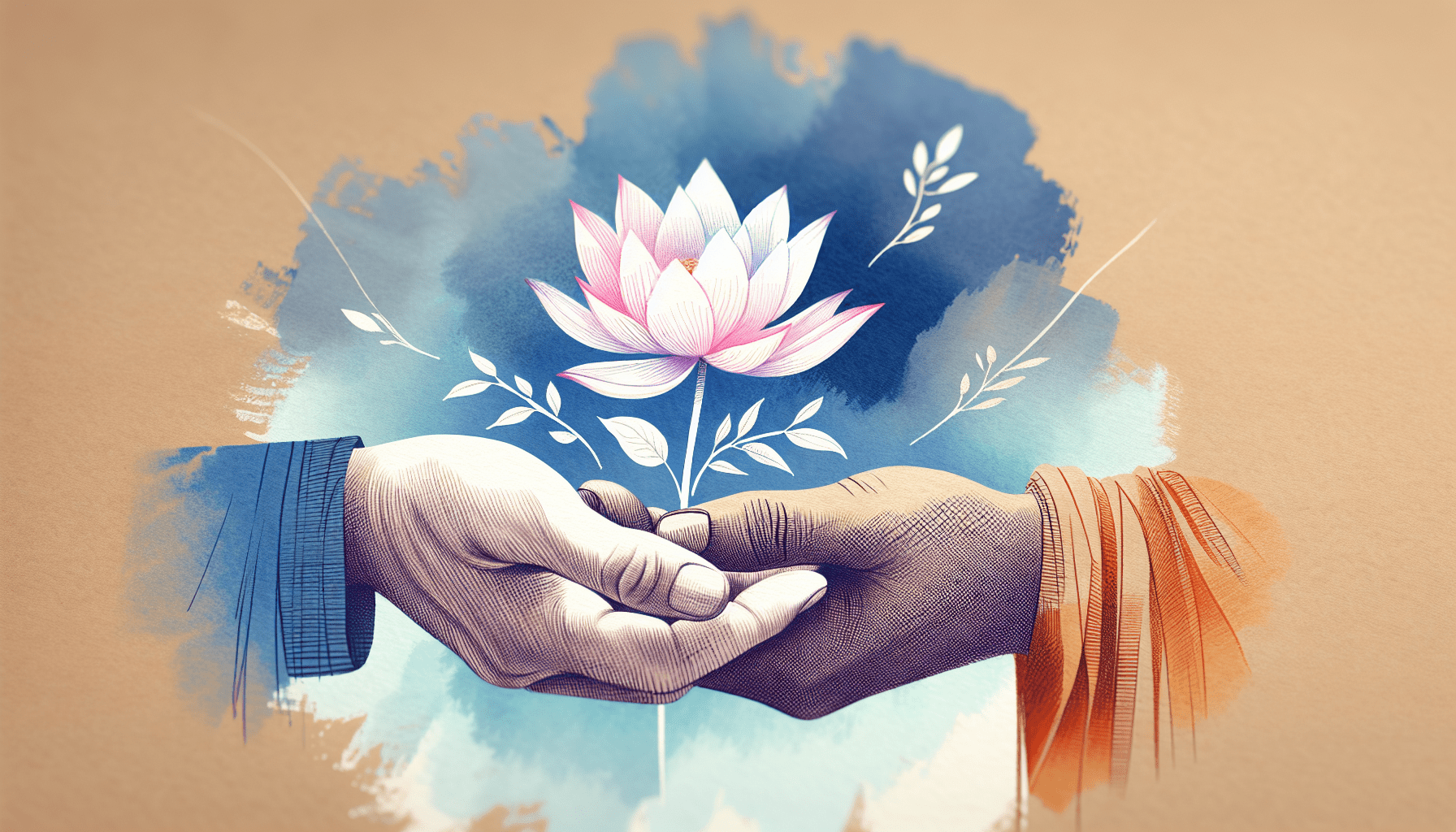Have you ever wondered how you can cultivate more mindful relationships in your life? By incorporating holistic practices into your daily routine, you can create stronger connections with yourself and others. In this article, we will explore various techniques and strategies to help you foster more meaningful and fulfilling relationships through mindfulness.
Understanding Mindful Relationships
Mindful relationships are built on a foundation of presence, awareness, and mutual respect. When you engage in mindful interactions with others, you are fully present in the moment, listening with intention, and responding with compassion. These relationships are characterized by open communication, empathy, and a genuine desire to connect on a deeper level. By cultivating a sense of mindfulness in your relationships, you can create a more harmonious and fulfilling connection with those around you.
Being Present in Your Interactions
One of the key aspects of cultivating mindful relationships is learning to be present in your interactions with others. This means putting away distractions, such as phones or other devices, and giving the person you are speaking with your full attention. By actively listening and engaging in the conversation without judgment or preconceived notions, you can create a space for honest and meaningful communication to thrive.
Practicing Empathy and Compassion
Empathy and compassion are essential components of mindful relationships. By putting yourself in the other person’s shoes and trying to understand their perspective, you can foster a sense of connection and understanding. Showing compassion towards others, even in difficult situations, can help build trust and create a sense of emotional safety in your relationships.
Incorporating Holistic Practices
Holistic practices encompass a wide range of techniques and strategies that promote overall well-being and balance in mind, body, and spirit. By incorporating these practices into your daily routine, you can cultivate a sense of harmony within yourself, which will naturally translate into your relationships with others.
Mindfulness Meditation
Mindfulness meditation is a powerful tool for cultivating self-awareness and presence. By dedicating just a few minutes each day to quiet reflection and mindfulness practice, you can reduce stress, improve mental clarity, and enhance your emotional well-being. This sense of inner peace and grounding can help you approach your relationships with a sense of calm and clarity, allowing for more meaningful and authentic connections to flourish.
Yoga and Breathwork
Yoga and breathwork are both excellent holistic practices for promoting physical, mental, and emotional well-being. The physical postures and movements of yoga can help release tension and promote relaxation in the body, while breathwork techniques can calm the mind and foster a sense of inner peace. By incorporating yoga and breathwork into your daily routine, you can cultivate a deeper connection with your body and mind, which will positively impact your relationships with others.
Nature Connection
Spending time in nature is a powerful way to cultivate mindfulness and connection with the world around you. Whether you take a walk in the park, go for a hike in the mountains, or simply sit outside and soak up the sun, spending time in nature can help you feel more grounded and present. This sense of connection with the natural world can also foster a greater appreciation for the beauty and wonder of life, leading to a more positive and open-hearted approach to your relationships with others.

Cultivating Self-Awareness and Reflection
Self-awareness is a key component of cultivating mindful relationships. By taking the time to reflect on your thoughts, emotions, and behaviors, you can gain a deeper understanding of yourself and how you show up in your relationships. This self-awareness allows you to identify patterns, triggers, and areas for growth, which can help you communicate more effectively, set boundaries, and navigate conflicts in a healthy and constructive way.
Journaling and Self-Reflection
Journaling is a powerful tool for self-reflection and introspection. By writing down your thoughts, feelings, and experiences, you can gain clarity and insight into your inner world. Journaling can also help you track your emotional responses, identify recurring patterns, and set intentions for personal growth and development. By incorporating journaling into your daily routine, you can deepen your self-awareness and cultivate a greater sense of personal insight, which will enhance your relationships with others.
Mindful Communication Practices
Effective communication is essential for building strong and healthy relationships. Mindful communication practices, such as active listening, speaking with intention, and practicing nonviolent communication, can help you foster more meaningful and authentic connections with others. By being aware of your words, tone, and body language, you can communicate more effectively and empathetically, leading to greater understanding and harmony in your relationships.
Nurturing Emotional Intelligence and Empathy
Emotional intelligence and empathy are important skills for cultivating mindful relationships. By developing these qualities, you can better understand your own emotions and the emotions of others, which will help you navigate conflicts, build trust, and foster deeper connections with those around you.
Emotional Regulation Techniques
Emotional regulation is the ability to manage and express your emotions in a healthy and constructive way. By practicing emotional regulation techniques, such as deep breathing, mindfulness, and positive self-talk, you can learn to respond to challenging situations with composure and grace. This emotional resilience can help you communicate more effectively, show empathy towards others, and foster a sense of emotional safety in your relationships.
Cultivating Empathy and Understanding
Empathy is the ability to understand and share the feelings of another person. By cultivating empathy, you can develop a deeper sense of connection and compassion towards others, which will strengthen your relationships and foster trust and intimacy. Practicing active listening, putting yourself in the other person’s shoes, and responding with kindness and understanding can help you develop a greater capacity for empathy and create more authentic and fulfilling relationships.

Setting Boundaries and Prioritizing Self-Care
Setting boundaries and prioritizing self-care are essential components of cultivating mindful relationships. By establishing healthy boundaries and taking care of your own well-being, you can protect your energy, maintain a sense of balance, and show up more authentically in your relationships with others.
Establishing Personal Boundaries
Personal boundaries are the limits that you set for yourself in terms of how you allow others to treat you and what you are willing to tolerate in your relationships. By establishing clear and healthy boundaries, you can communicate your needs, values, and expectations to others, which will help you feel respected and understood. Setting boundaries also allows you to take care of yourself and prioritize your own well-being, which is essential for cultivating healthy and fulfilling relationships.
Practicing Self-Care Rituals
Self-care is the practice of taking care of your physical, mental, and emotional well-being. By prioritizing self-care rituals, such as getting enough rest, eating nourishing foods, engaging in activities that bring you joy, and seeking support when needed, you can replenish your energy, reduce stress, and cultivate a sense of balance and harmony within yourself. When you take care of your own well-being, you are better able to show up authentically in your relationships, giving and receiving love and support in a more sustainable and fulfilling way.
Conclusion
Cultivating mindful relationships through holistic practices is a powerful and transformative process that can lead to deeper connections, greater understanding, and enhanced well-being for both yourself and those around you. By incorporating mindfulness, self-awareness, emotional intelligence, and self-care into your daily routine, you can create more meaningful and fulfilling relationships that are grounded in presence, empathy, and compassion. As you continue on your journey of cultivating mindful relationships, remember to be gentle and patient with yourself, and to approach each interaction with openness, curiosity, and a willingness to connect on a deeper level. With time, practice, and dedication, you can create the fulfilling and harmonious relationships that you desire, nurturing a sense of connection and love that will enrich your life in countless ways.

